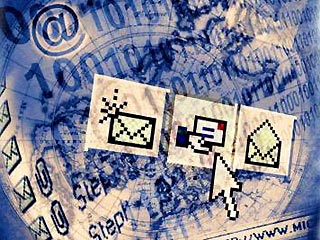Spam sender sentenced in Russia for the first time
 On June 22 student Dmitry Anosov from the city of Chelybinsk was sentenced for “creating software causing uncontrolled blocking computers and copying information”.
On June 22 student Dmitry Anosov from the city of Chelybinsk was sentenced for “creating software causing uncontrolled blocking computers and copying information”.
His crime was about sending unsolicited messages to the owners of GSM-telephones, that is spam.

The student was put on probation for one year and required to pay fine of 3,000 roubles ($100), the Kommersant reported.
In the summer of 2003 the employees of cell operator company “Uralsky GSM”, the subsidiary of Megafon company, complained to the police that more than 15,000 cell phone owners were receiving unquotable SMS-messages on May 23-24. The suspect was detected, his apartment was searched, and the police confiscated the material evidence – the computer having the software for sending SMS-messages. According to the police, the student created the software for sending SMS-messages to the customers of Uralsky GSM company. In February, 2003 Androsov tested his software by sending several SMS-messages to a company customer. In the end of May, 2003 Androsov used somebody else’s data to connect to the Internet, and uploaded his software to the server hosted in St. Petersburg to avoid being detected, and started the software. As a result, the customers received unquotable SMS-message discrediting the image of cell phone operator Megafon company.
SMS-spam sender pleaded guilty. This case can create precedent and help Russian law-enforcers and legal system to safeguard Russian society people from spam.
There is a special law on spam in the USA, but Russia lacks such a law. The legal regulating of the Internet is only being discussed in Russia. Internet companies do not try to lobby special anti-spam laws. Therefore, this court verdict was unique for Russia.
Source: Russian media
Subscribe to Pravda.Ru Telegram channel, Facebook, RSS!


